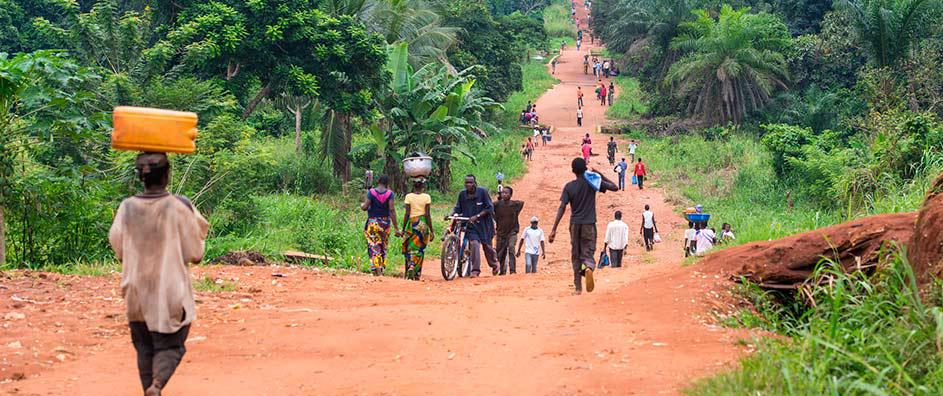The intersection of environmental stewardship and leadership within the Bahá’í framework underscores the significance of collective action, particularly in the context of Africa. The Bahá’í teachings provide a robust ethical foundation that emphasizes unity, the power of collective efforts, and the necessity of safeguarding the environment. African leaders, embodying these principles, have increasingly recognized the urgency of addressing environmental challenges that transcend national borders. Their commitment to collaborative solutions is essential in confronting climate change, biodiversity loss, and resource depletion. This article explores the synergies between Bahá’í teachings and the initiatives taken by African leaders to tackle pressing environmental goals.
Throughout the trajectory of Bahá’í discourse, the concept of unity in diversity emerges as a salient tenet, fostering an atmosphere conducive to dialogue and cooperation. This principle serves as a cornerstone for African leaders who seek to address environmental degradation. Recognizing that environmental issues know no geographical boundaries, leaders are called to embrace a collective ethos that transcends tribal affiliations, national interests, and even ideological differences. The Bahá’í teachings advocate for a global perspective, asserting that humanity is fundamentally one. In this light, African leaders are encouraged to forge partnerships that leverage collective strengths to combat climate change and promote sustainable practices.
Moreover, the Bahá’í principle of justice plays an integral role in environmental advocacy. Justice, as understood in Bahá’í thought, encompasses not only equity among individuals but also fair access to natural resources. African leaders, equipped with this understanding, are thus inspired to form policies that not only address economic disparities but also enhance environmental protections. This holistic approach encourages social equity alongside environmental sustainability, thus ensuring that marginalized communities are not left behind in the quest for solutions. The pursuit of environmental goals must be rooted in a deep sense of responsibility for both current and future generations, a notion echoed in Bahá’í teachings.
The transformative potential of education cannot be overstated in the context of ecological awareness. Bahá’í teachings emphasize the necessity of a universal education system that equips individuals with knowledge and skills to contribute to societal advancement. African leaders are integrating educational initiatives focused on environmental stewardship into their national agendas. By promoting awareness and cultivating a sense of environmental responsibility among the youth, these leaders are fostering a generation that embraces sustainability as a personal and collective imperative. Schools and communities are becoming fertile grounds for environmental education, encouraging innovative practices that benefit local ecosystems.
Furthermore, the Bahá’í concept of consultation emerges as a powerful tool in addressing environmental challenges. This process, characterized by openness and respect, allows individuals and leaders to share insights, debate alternatives, and arrive at decisions that reflect a consensual understanding of their collective needs. African leaders, when engaging in environmental negotiations, are increasingly employing consultation as a mechanism to harmonize diverse viewpoints and arrive at integrative solutions. This approach is paramount in multilateral discussions concerning climate policies and resource management, where the intricate web of challenges demands a collaborative rather than a confrontational stance.
In analyzing concrete actions, one can observe various initiatives spearheaded by African leaders in aligning environmental stewardship with community development. For instance, reforestation and conservation projects across the continent exemplify leaders’ commitment to sustainable ecosystems. These initiatives often engage local communities, ensuring that their voices are heard and that they play an active role in the management of natural resources. Emphasizing indigenous knowledge and practices in environmental management aligns with Bahá’í teachings that advocate for the application of both scientific and spiritual principles in fostering a sustainable world.
Furthermore, the role of technology cannot be overlooked. As the digital age engenders a paradigm shift in information dissemination, African leaders are harnessing technology to enhance environmental governance. From satellite imagery for tracking deforestation to digital platforms that facilitate access to information about local biodiversity, technology is an invaluable ally in the quest for sustainability. Educational programs, supported by digital tools, are empowering individuals and communities with data-driven insights to promote ecological resilience.
African leaders are also fostering international partnerships that resonate with the essence of Bahá’í values. Through forums and conferences, leaders engage with global counterparts, sharing best practices and collectively addressing transnational environmental challenges. The Bahá’í community’s emphasis on collaboration and dialogue serves as a framework that enhances these international relations, wherein leaders can course-correct on their sustainable development pathways while learning from one another’s experiences.
In summation, the African initiative to address environmental goals is intricately woven into the fabric of Bahá’í teachings that advocate unity, justice, consultation, and education. By embracing these principles, African leaders epitomize the collective spirit needed to confront environmental crises with resilience and creativity. The integration of local knowledge, technological innovation, and international cooperation amplifies their efforts to foster an environmentally sustainable future. Such leadership heralds a new epoch in which humanity’s shared responsibility toward the Earth is recognized as a sacred duty, culminating in a harmonious equilibrium between civilization and nature.
